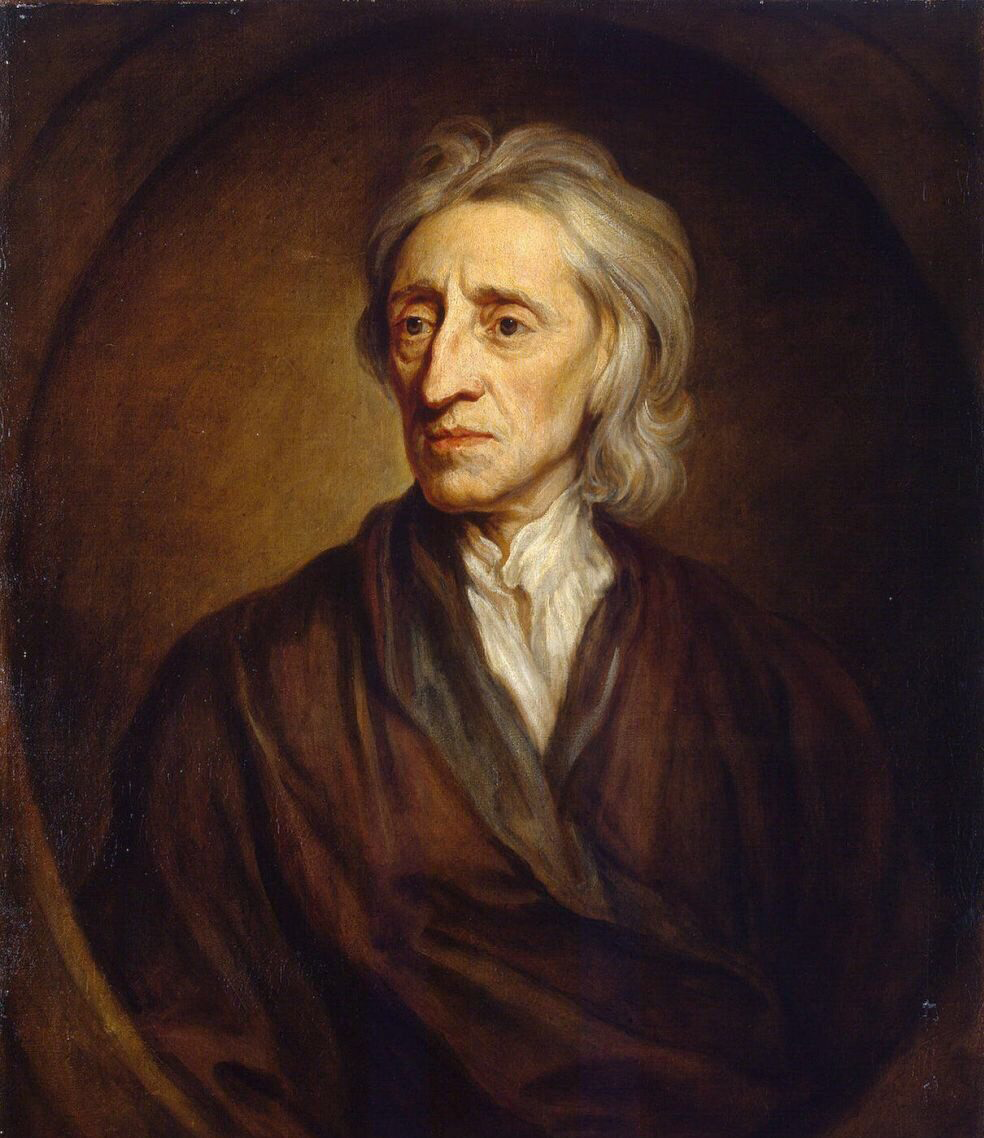Frases célebres de John Locke
“Ningún conocimiento humano puede ir más allá de su experiencia.”
Fuente: Herrera Carles, Humberto. 1500 Frases, pensamientos para la vida. Editor Lulu.com. ISBN 9781105216565, p. 57.
“Cada uno es ortodoxo con respecto a sí mismo.”
Fuente: Citado en Comellas, José Luis. Páginas de la historia. Ediciones Rialp, 2009. ISBN 9788432137426, p. 171.
Fuente: Citado en Gamboa Mora, María Cristina; Yenny García Sandoval, Vicky Del Rosario Ahumada De La Rosa. Diseño de Ambientes de Enseñanza-Aprendizaje.: Consideraciones con base en la PNL y los estilos de aprendizaje. Editorial Universidad Nacional Abierta y a Distancia, 2017. ISBN 9789586516112, p. 109.
Frases de hombres de John Locke
Fuente: Prize, Walter L. 1000 ideas para atraer lo que quieras a tu vida: Guía práctica. Mestas Ediciones, 2016. ISBN 9788416669448.
Ensayo sobre el gobierno civil
John Locke Frases y Citas
Fuente: Citado en Nuestra historia, volumen 4, números 1-3. Ediciones La Cara Oculta.
Fuente: Citado en Locke, John. Pensamientos sobre la educación. Ediciones AKAL, 1986. ISBN 9788476000953, p. 20.
Fuente: Pensamientos sobre la educación.
Fuente: Amate Pou, Jordi. Paseando por una parte de la Historia: Antología de citas. Editorial Penguin Random House Grupo Editorial España, 2017. ISBN 9788417321871, p. 133.
Fuente: Citado en Urbano, Andrés; Barragán, Hernando. Hipercubo/ok/: arte, ciencia y tecnología en contextos próximos. Editorial Comité de Investigaciones de la Facultad de Artes y Humanidades, Facultad de Ingeniería, Universidad de Los Andes, 2002. ISBN 9789586950572, p. 88.
Ensayo sobre el gobierno civil
Ensayo sobre el entendimiento humano, XI:9: «De los remedios contra las ya mencionadas imperfecciones y abusos de las palabras.» (1690).
Original en inglés
Fuente: Locke, John: Ensayo sobre el entendimiento humano. XI:9: «De los remedios contra las ya mencionadas imperfecciones y abusos de las palabras.» http://www.ehu.eus/ehg/hac/liburua?l=LockeE&o=108 Hizkuntzen arteko Corpusa (HAC). Consultado el 15 de mayo de 2019.
Fuente: Locke, John (en inglés): An Essay Concerning Human Understanding, Chapter XI: «Of the Remedies of the Foregoing Imperfections and Abuses of Words.» https://ebooks.adelaide.edu.au/l/locke/john/l81u/B3.11.html University of Adelaide. Consultado el 15 de mayo de 2019.
John Locke: Frases en inglés
“Our Business here is not to know all things, but those which concern our conduct.”
Fuente: An Essay Concerning Human Understanding 2
Fuente: An Essay Concerning Human Understanding
“A sound mind in a sound body, is a short but full description of a happy state in this world.”
Sec. 1
Some Thoughts Concerning Education (1693)
Preface to the Reader
The Reasonableness of Christianity (1695)
Sec. 94
Some Thoughts Concerning Education (1693)
Sec. 81
Some Thoughts Concerning Education (1693)
Second Treatise of Government, Ch. II, sec. 4
Two Treatises of Government (1689)
“There cannot any one moral Rule be propos'd, whereof a Man may not justly demand a Reason.”
Book I, Ch. 3, sec. 4
An Essay Concerning Human Understanding (1689)
Sec. 107
Some Thoughts Concerning Education (1693)
Sec. 115
Some Thoughts Concerning Education (1693)
“I am sure, zeal or love for truth can never permit falsehood to be used in the defence of it.”
187
The Reasonableness of Christianity (1695)
§ 106
The Reasonableness of Christianity (1695)
Sec. 115
Some Thoughts Concerning Education (1693)
Sec. 145
Some Thoughts Concerning Education (1693)
This might be a paraphrase of some of Locke's expressions or ideas, but the earliest publication of the statement in this form seems to be one made in Oversight Hearing on the Columbia River Gorge National Scenic Area Act (1997).
Misattributed
Second Treatise of Government http://www.constitution.org/jl/2ndtr14.htm, Sec. 168
Two Treatises of Government (1689)
Sec. 115
Some Thoughts Concerning Education (1693)
Second Treatise of Government, Ch. V, sec. 27
Two Treatises of Government (1689)
Book III, Ch. 9, sec. 4
An Essay Concerning Human Understanding (1689)
Sec. 115
Some Thoughts Concerning Education (1693)
This statement has been attributed to John A. Locke, but John Locke did not have a middle name. The words "dynamic," "boring" and "repetitive," found in this quote, were not yet in use in Locke's time. (See The Online Etymology Dictionary http://www.etymonline.com/abbr.php.) John A. Locke is listed on one site as having lived from 1899 to 1961; no more information about him was available.
Misattributed
Sec. 81
Some Thoughts Concerning Education (1693)
Sec. 119
Some Thoughts Concerning Education (1693)
Sec. 115
Some Thoughts Concerning Education (1693)
